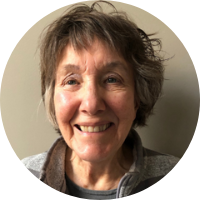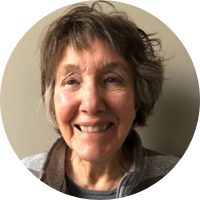
Did you choose retirement? Or was it chosen for you?
I chose to retire. I felt that I had been teaching long enough and was beginning to lose patience with some of the more challenging students! Also, I kept getting more work piled on me, not less. I was the Chair of the Chemistry Department, which meant that I taught classes and labs, but also had some administrative work. The University was cutting down on non-teaching staff. This had the effect of transferring work that had been formerly done by staff to the faculty.
How was the transition from the working world to retirement?
Initially, I felt that I had lost some of my identity, and I might have become depressed - except in my case, I was called back for an emergency 6 months later; they needed a part timer to replace someone who got sick. I agreed to go back part time for two semesters, which helped a lot in the transition. It was more gradual.
How do you stay connected to the chemistry enterprise as a retiree?
I volunteer for ACS at the national level (Editor of Senior Chemists Committee Newsletter), and local section level — I organized a Senior Group in our local section, and am still a councilor. However, I may resign soon to give someone else a chance.
What do you like most about where you are living in retirement? What’s one thing you wish you could change about where you live?
After a year or two of retirement, and much discussion about where we should move for our retirement, we downsized and moved somewhere with easier upkeep. When we downsized, we did not leave our friends behind because we did not move far. We had been living in a relatively large home with a large lot in a suburb of the Twin Cities.
We moved to a new development into a "Villa" home (two-story, but designed so that you could live on one story with no stairs to climb if it became necessary) in a small town just on the edge of the Twin Cities conurbation, so the move was only about 15 miles.
I like that we can continue to go to the places we used to go to and see our friends without traveling long distances. I do wish that our family were closer — but this is not a problem we can solve quickly, with a daughter in England and another daughter in Seattle.
What do you wish you knew about retirement before you retired?
Many of our friends were associated with work. It is possible to keep up with them after retirement — but it takes more effort.
What’s your best piece of advice for people thinking about retirement?
Ensure you have one non-work activity (volunteer work is good) to keep up after retirement. Stopping work is a huge change in your lifestyle, and can lead to seemingly empty days until you settle into retirement. I think this is why some retirees get depressed. I found that continuing my volunteer work with ACS, at a local and a national level, gave me some continuing activities.

Lynn was born and brought up in Birmingham, England and attended the University of Exeter in Devon for a BSc Hons in Chemistry, and then moved back to the Birmingham area. She found a position working on analytical methods at Albright and Wilson, a now defunct company in the area.
Lynn traveled with her husband to Bloomington, Indiana for his postdoc, and found a job doing research in atmospheric chemistry, using flash photolysis, for a faculty member in the chemistry department.
On the return to the UK, Lynn and her husband were both offered temporary jobs at Exeter University, where she supervised and taught all the Physical Chemistry labs.
Having found the years of research interesting, Lynn also began working on a PhD in analytical electrochemistry and managed to finish it just before the birth of her first child, and a move to Harlow, Essex so her husband could accept a research position from 3M. After a few years, 3M moved Lynn and her family to Paris, France, and then to St Paul, MN.
After Lynn’s children started in grade school, she did some temporary teaching, and then found a fulltime tenure-track faculty position at the University of St Thomas in St. Paul, teaching Physical Chemistry and General Chemistry.
Eventually, Lynn took over the organization of the very large general chemistry program and introduced the faculty to new ways of teaching chemistry as well as continuing to teach. She became Department Chair, and then Chair of the Science Division.
Lynn joined ACS when she started teaching at a university, and did volunteer work for the local section, occupying several offices (Secretary, Chair, Education Chair). She eventually became a Councilor and joined LSAC, followed a few years later by M&E, and the Senior Chemists Committee (SCC), where she has spent several years editing the SCC Newsletter.
Copyright 2021 American Chemical Society (All Rights Reserved)
This article has been edited for length and clarity. The opinions expressed in this article are the author's own and do not necessarily reflect the view of their employer or the American Chemical Society.











